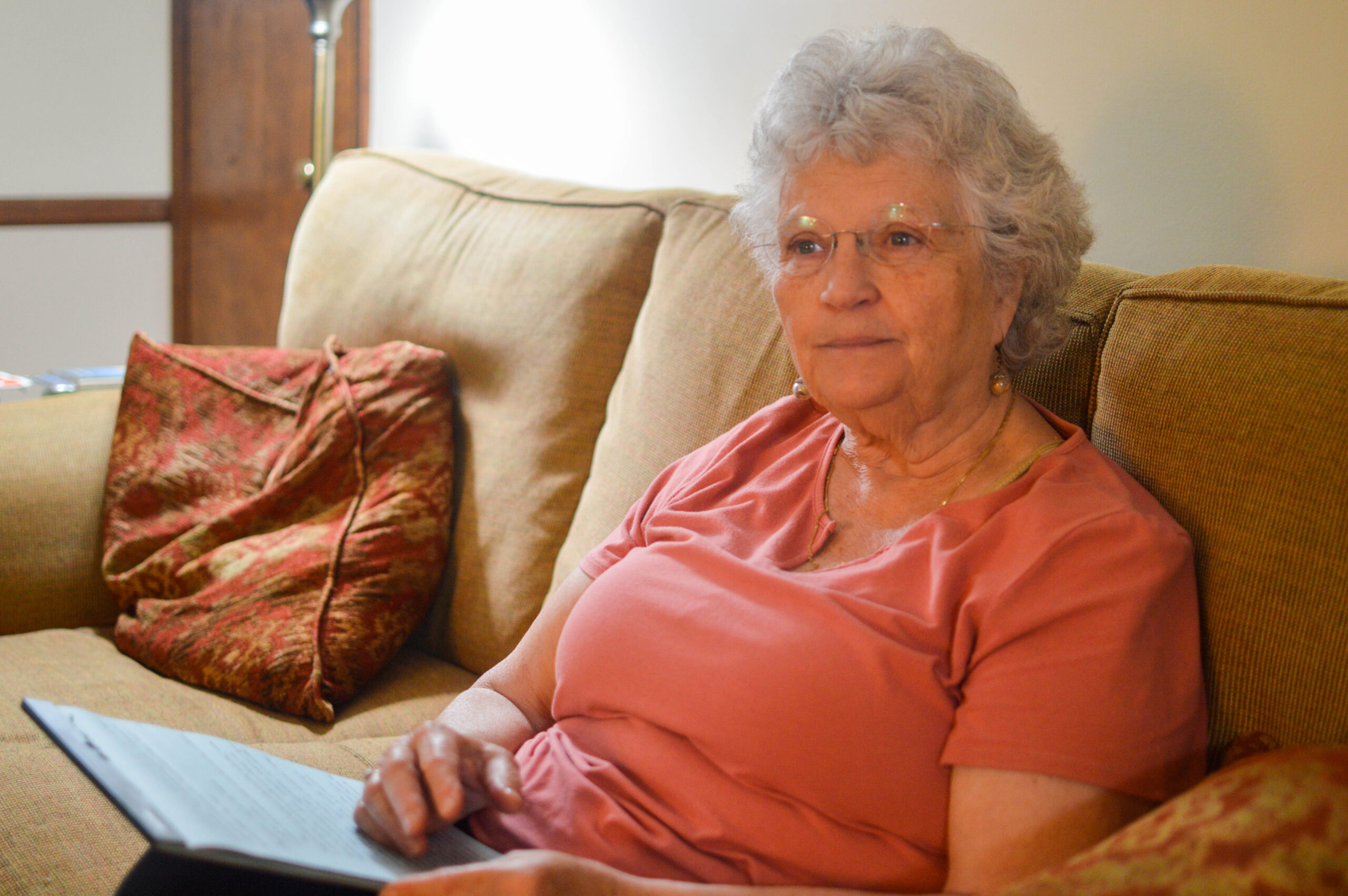
Voting is fundamental to a well-functioning democracy. But it’s not an easy thing to do. In fact, since 2020, more than half of states across the country have made it harder on citizens wanting to cast a ballot. That includes Tennessee.
The state has tightened the screws and left voters to navigate a complex and ever-changing set of rules.
Madeline Garr and her husband Tony live in a two-story home that they built by hand. It sits on a steep hill in Donelson.
The Garrs have been voting since 1986. Until recently, they’ve gone in person, but that changed during the COVID-19 pandemic.
“We didn’t want to go and stand in line because it was going to be a big election because, you know, it was a presidential election,” she said. “And you never know how long. I’ve stood in line two and a half hours sometimes.”
So, to not risk contracting COVID-19, they voted by mail. That was made possible by a lawsuit filed ahead of the 2020 presidential election.
“The courts ruled that because of the COVID issue, that anyone could fill out an absentee ballot and request mail-in balloting,” Garr said.
Before that ruling, voting absentee wasn’t an option for everyone. Under Tennessee law, a resident needs an excuse — like being 60 years or older, being a college student or a nursing home resident.
But voting absentee is a lengthy process. Garr had to fill out an application and submit it to the Davidson County Election Commission at least a week before the election.
“You know, depending upon neighborhood, depending upon access, depending upon cost and what people can afford to mail in an absentee ballot, you know, that may be complicated,” Garr said.

Donelson resident Madeline Garr and her husband have been voting since 1986 — in person until the COVID-19 pandemic recently expanded vote-by-mail options for residents.
And voting is more complicated for college students. Mary Evins is a research professor at Middle Tennessee State University. Every year, she walks students off campus to the nearest voting precinct to cast their ballot.
Evins wants college campuses to have voting precincts. There have been several attempts to do so, but the Republican supermajority in Tennessee keeps derailing them.
“And you know, they quibbled over everything under the sun,” Evins said. “Oh, parking on campus, we can’t do that. And then it was like: Would it be on Election Day, you know, a real polling precinct, or would it be an early voting location? So we agreed early voting location. Then was: How many days of early voting would be on the campus?”
Republicans argue it’d cost too much, but Evins isn’t buying that.
“Every topic was a negotiation, and then ultimately, it failed. I mean, and you know, people just sort of threw up their hands,” Evins said.
Jasleen Singh is with the Brennan Center, which studies voting rights. She believes hurdles to voting are a nationwide strategy being implemented by state legislatures.
“I think that a lot of what we’re seeing is still sort of riding the coattails of what we saw in 2020 and lies about election irregularities and voter fraud being rampant in mail voting and whatnot,” Singh said.
That’s when former President Donald Trump made claims of voter fraud and election interference, but Singh says there’s no evidence.
“It was one of the safest and most secure elections that we’ve had in history. And we know that voter fraud itself is a vanishingly rare phenomenon,” Singh said. “So these really restrictive laws are sort of chasing a conspiracy theory and lies about voter fraud that simply don’t exist.”
In Tennessee’s last legislative session, lawmakers attempted to lock independent voters out of primary elections — specifically, by closing primaries and requiring voters to register as either Republican or Democrat to get a primary ballot.
“That really would upset Tennesseans,” said Madeline Garr.
Garr says voters who aren’t privy to the voting process are often left out.
“You know, you’re intelligent. You know the game. You can play that game. But there are people who don’t know the game and who can’t play the game,” she said. “And it’s wrong because they’re the ones that I think government should be most careful with.”
All this in a state that ranks in the bottom five for voter turnout, and 13th on a scale of hardest states to vote in. But it doesn’t have to be that way.

